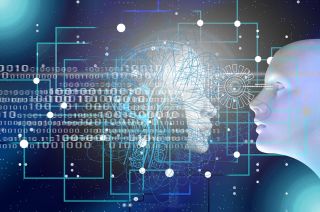Artificial Intelligence
Could AI Predict Psychosis Before it Happens?
An AI machine learning classifier can identify psychosis risk from brain images.
Posted February 17, 2024 Reviewed by Devon Frye

A new study published in Molecular Psychiatry demonstrates a new artificial intelligence (AI) machine learning algorithm developed by the University of Tokyo and their research colleagues that can predict the risk of psychosis from brain images.
The National Institute of Mental Health (NIMH) defines psychosis as a set of symptoms such as delusions, false beliefs, and hallucinations, that impact a person’s contact with reality. According to NIMH estimates, annually anywhere from 15 to 100 people out of 100,000 will develop psychosis, and often behavior changes such as withdrawing socially, decreased personal cleanliness or self-care, trouble separating fantasy from reality, difficulty thinking logically or clearly, paranoia, suspiciousness, sleep issues, and other more may occur before it happens.
Psychosis may be due to any number of factors such as genetic risk factors; brain development issues; exposure to stress or trauma; mental illnesses such as severe depression, bipolar disorder, and schizophrenia; sleep deprivation; or the abuse of alcohol or drugs. Psychosis may be a symptom of other diseases such as Alzheimer’s disease, dementia, and Parkinson’s disease.
Early detection of psychosis frequently yields more favorable recovery results, per the NIMH. Thus, having a way to predict the onset of psychosis before a person experiences a psychotic episode using AI machine learning may improve patient outcomes.
“The clinical high risk (CHR) paradigm is widely used with the goal of improving early detection of and prevention of psychotic disorders,” wrote corresponding author and University of Tokyo Associate Professor Shinsuke Koike, Ph.D., along with his research colleagues from 21 institutions from Japan, Spain, Germany, the U.K., Italy, Norway, Sweden, Denmark, the U.S., Canada, China, South Korea, Switzerland, Russia, Singapore, and the Netherlands.
The scientists developed an AI machine learning algorithm using MRI brain scan data from people at clinical high risk who later had psychosis from 21 sites of the ENIGMA Clinical High Risk for Psychosis Working Group. The AI machine learning algorithm used was XGBoost (eXtreme Gradient Boosting), a scalable, open-source software library for distributed gradient-boosted decision tree (GBDT) algorithms. XGBoost deploys parallel tree boosting and is widely used for classification, ranking, and regression problems. The researchers developed an AI classifier and plotted the weights to identify key features for generalization.
“The accuracy of the classifier on the training and independent confirmatory datasets was 85 percent and 73 percent, respectively,” the researchers reported.
MRI brain scans of those at clinically high risk for psychosis in other studies have shown structural differences in the brain, namely in reduced gray matter in the medial and superior temporal and medial frontal cortex according to the scientists. For this current study, the researchers found that the superior temporal, insula, and superior frontal areas were brain regions that helped the algorithm the most in classifying healthy controls from high-risk participants who later developed psychosis.
“These results suggest that when considering adolescent brain development, baseline MRI scans for CHR individuals may be helpful to identify their prognosis,” the scientists concluded.
Copyright © 2024 Cami Rosso All rights reserved.


